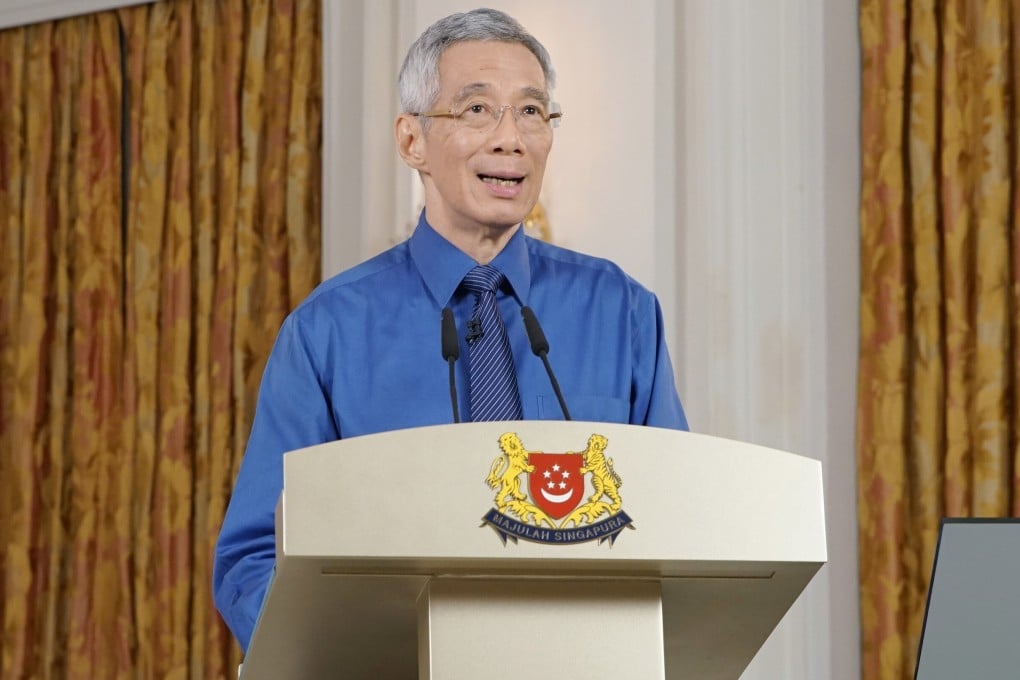Advertisement
Singapore’s political stability and willingness to ‘play by the rules’ will propel coronavirus recovery, PM Lee Hsien Loong says
- In the first of six speeches by government leaders, the prime minister offered assurances about the city state’s post-pandemic prospects
- The speeches are an informal beginning to the ruling People’s Action Party’s election campaign ahead of expected polls in July, experts say
Reading Time:3 minutes
Why you can trust SCMP

Singapore’s status as a bastion of political stability and the government’s commitment to “playing by the rules” with investors will be crucial to its ability to rebound from the coronavirus recession, Prime Minister Lee Hsien Loong said on Sunday.
Lee’s televised address kicked off a series of six speeches that government leaders will deliver over the next two weeks before the expected further easing of movement restrictions in place since early April.
According to political observers, Lee is then likely to instruct the president to dissolve Parliament to trigger a general election.
Lee, who did not mention the impending poll in his 22-minute speech, said Singapore’s “strong, trusted international reputation” would help it survive in a less prosperous post-pandemic world.
Advertisement
“In a troubled world, investors will value the assurance of a government that plays by the rules,” he said. “A people who understand what is at stake and a stable political system that enables businesses to continue operating even in a crisis.
“The way Singapore has responded to Covid-19 – openly and transparently, neither avoiding reality, nor acting arbitrarily at the first sign of trouble – has only strengthened this advantage.”
Advertisement
On Saturday, Singapore’s Communications and Information Ministry said the series of speeches was designed to combat the cloud of uncertainty created by the pandemic. Political commentators, however, said the public messaging blitz was also a way for Lee’s ruling People’s Action Party (PAP) to address criticism over its handling of the number of cases in foreign worker dormitories.
Advertisement
Select Voice
Choose your listening speed
Get through articles 2x faster
1.25x
250 WPM
Slow
Average
Fast
1.25x